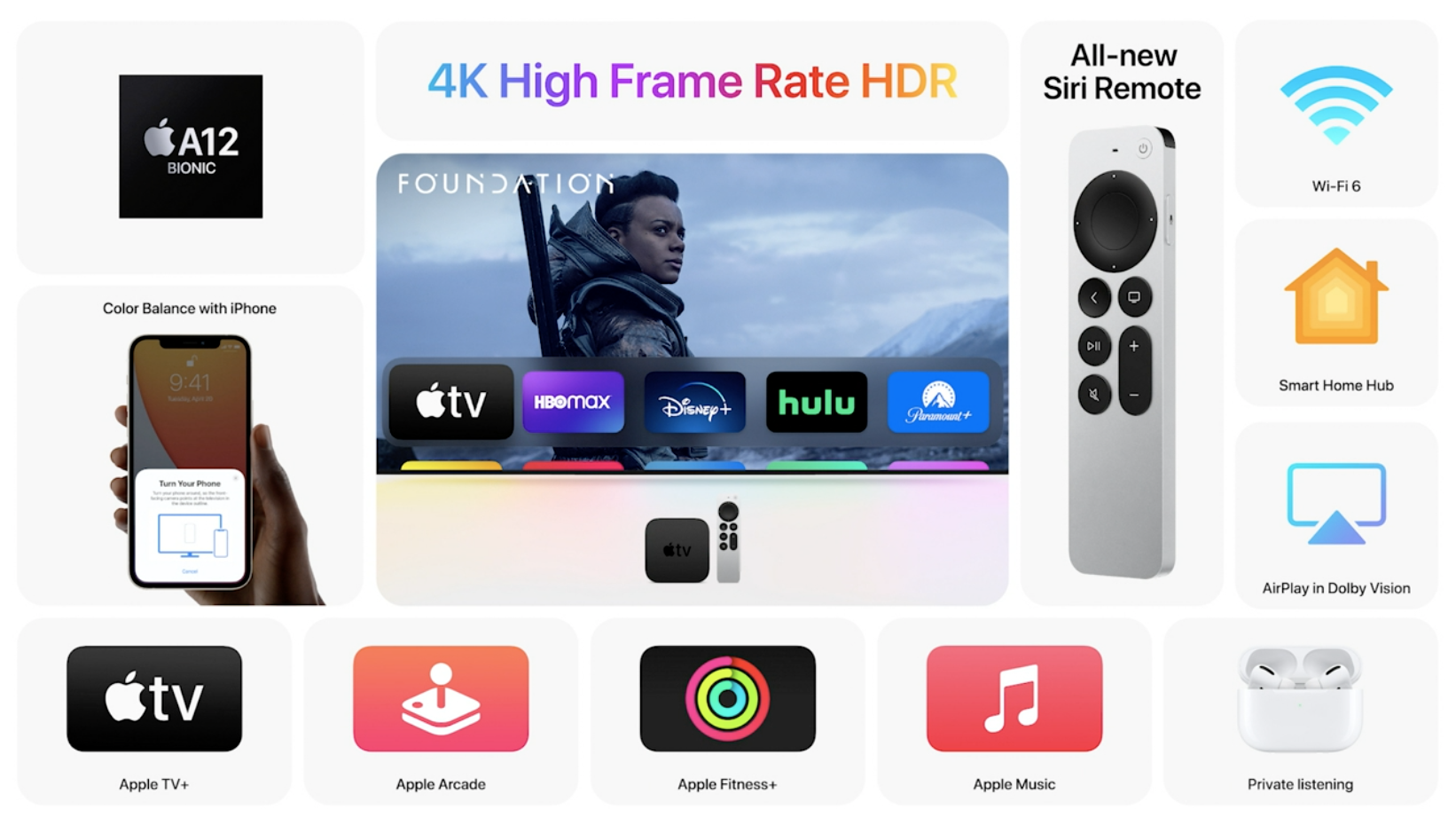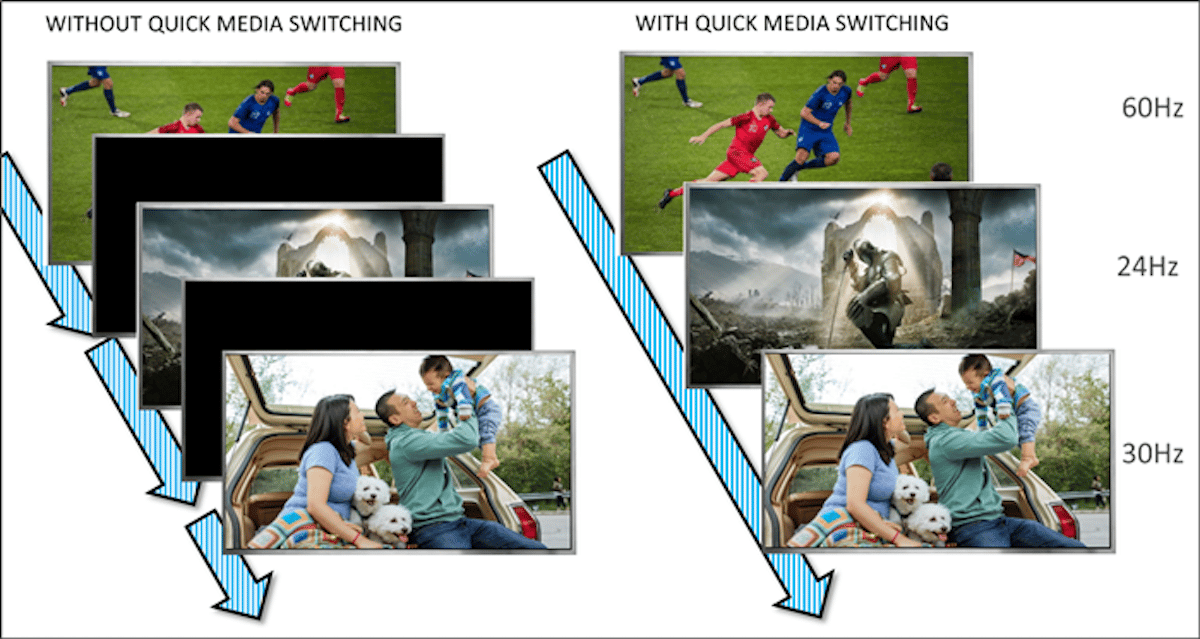The new Apple TV 4K set-top box is going to add support for Quick Media Switching Variable Refresh Rate (QMS VRR) in a future tvOS update. Reviews of the 2022 Apple TV 4K reveal that Apple will update the device with the QMS VRR feature to prevent, the few seconds, blackouts when switching between content playing in different frame rates.

With ‘Quick Media Switching Variable Refresh Rate’ support, Apple TV 4K will be able to change videos’ frame rate without blackouts
Currently, a 1-3 seconds blackout happens when users switch between videos playing in different frame rates. Using the new HDMI VRR mechanism, Quick Media Switching will instantly switch between rates and eliminate those blackouts as long as the resolution remains the same and the frame rate changes, only. HDMI org explains:
For example, when watching trailers from a streaming service or Blu-ray, some may be in 24Hz, 50Hz, or 60Hz. Before HDMI 2.1a with QMS, every time a trailer with a different frame rate is selected, either (1) the frames must be repeated using a specific cadence to compensate for the frame rate difference, introducing motion judder; or (2) the entire system must change its clocking and re-sync when the frame rate changes, causing an A/V blackout.

The Verge said that update is expected to release on Apple TV 4K (third-generation) later this year.
The third-gen Apple TV 4K has another bit of future proofing up its sleeve: later this year, a software update will add support for what’s known as QMS VRR. This enables compatible TVs to switch between different frame rates without any black screens or noticeable picture interruptions.
How many TVs work with QMS VRR, you ask? Well, zero at the moment. But you’ll start seeing them hit the market next year; stay tuned for more news about this feature at CES. I’ve never been that bothered by the short flicker when changing frame rates, but I won’t miss it, either.
It is possible that the QMS VRR support will be added to Apple TV 4K (second generation) because the device was updated with high-framerate HDR content up to 60 fps and HDMI 2.1 in 2021.